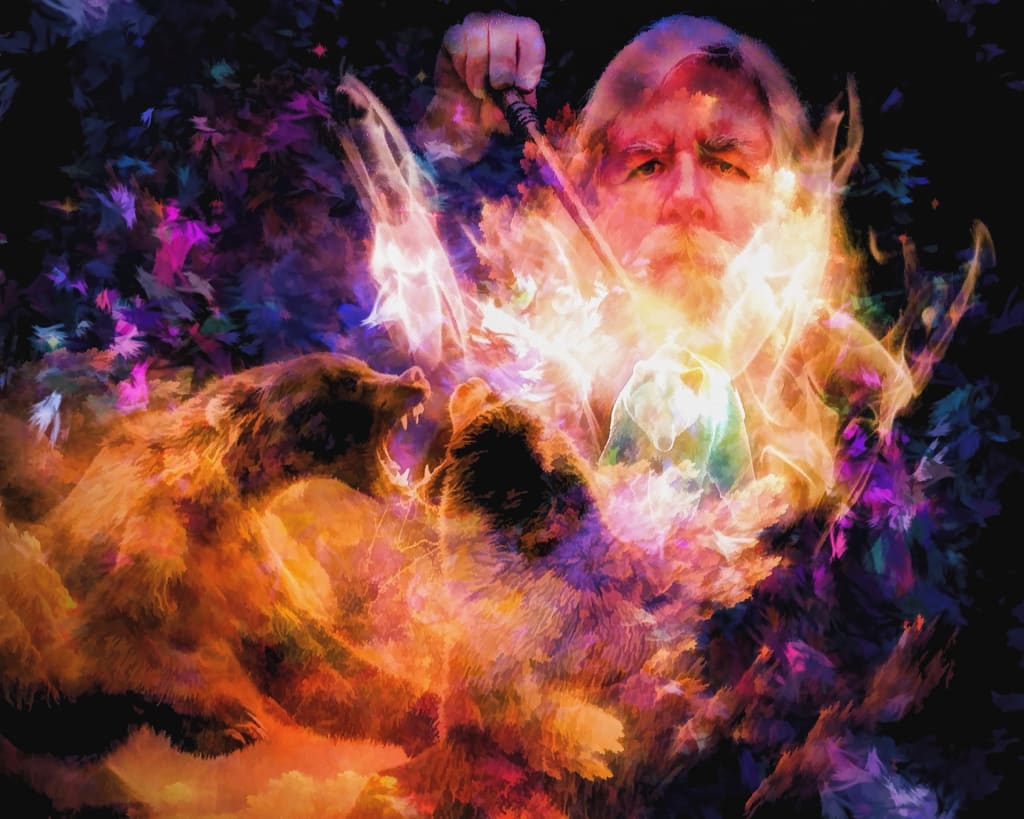What is a Wizard?
A Deeper Dive Into The Etymology of These Spellcasters

Thanks to the Harry Potter series, and other works of more modern fantasy like the Dresden Files, wizards have become cool again. Though they were once relegated to the pages of dime novel fantasy and Dungeons and Dragons role playing books, or found only as supporting cast members in old fairy tales and myths, today's wizards have shaved off their beards, hit the gym, and become powerful protectors of humanity in modern fiction. The re-imagining has led a lot of fans to question why wizards were always learned old gray beards with a penchant for philosophy, though. Is it just a stereotype that was built upon cultural touchstones, or was there something more to it?
Fortunately there's a simple answer to this question. That image of a traditional wizard as being old, learned, and more-often-than-not male is exactly what the term originally referred to.
For those interested in more etymological deep dives, you should take a moment to check out What is a Warlock? and What is a Witch? along with more of my articles on history, gaming, and general geekery in my full Vocal archive!
So, What is a Wizard?
The word wizard entered general use in the 14th or 15th century, which means that it came out after the Black Death and right around the time of the witch craze. Interestingly, this makes it the youngest of the terms we might use to describe someone who works magic, despite the image of wizards as being traditionally old and wise.
The word is actually two different words put together, according to the Online Etymology Dictionary; the first word is wys, meaning wise, and ard which acts as an intensifier when combined with words in old French (sort of like drunkard, but with wisdom instead of alcohol). The result is a word that means, "one who is wise," or, "one who excels at wisdom."
Interestingly, the term was originally meant to refer to philosophers, scholars, and other learned individuals (folks who, at the time, were predominantly older men), but during the Middle Ages the line between philosophy and magic blurred considerably. The result was that, in addition to being learned in science and philosophy, wizards were supposedly able to see the future, and to possess the ability to work all kinds of spells. This was solidified around 1550 or so, as secret knowledge and magic overtook the more mundane wisdom supposedly possessed by one referred to as a wizard.
And for those across the pond, if we fast-forward all the way to 1922 the word wizard became a British slang term for anyone who was supernaturally gifted at something. Pinball, computers, darts; the activity didn't matter. The point was that the person with skill was a "wiz" at it, implying some secret insight that gave them their phenomenal skill and ability.
Is That Really It?
Yep, that's pretty much it.
We've had dozens of terms for magic users and spellcasters throughout history, and English has borrowed most of them from other languages and traditions over the years. In the European north there were warlocks, and in the Middle East there were sorcerers. There were witches in the west, and they eventually got mixed up with mages, occultists, Wiccans, pagans, neo-pagans, and the list goes on and on. The point is that every word has its own, unique history and that if you dig deeply enough you'll be able to find it. Sometimes you won't find anything interesting, but other times you'll find that a word that means one thing today meant something very, very different in the near or distant past.
About the Creator
Neal Litherland
Neal Litherland is an author, freelance blogger, and RPG designer. A regular on the Chicago convention circuit, he works in a variety of genres.
Blog: Improved Initiative and The Literary Mercenary






Comments
There are no comments for this story
Be the first to respond and start the conversation.